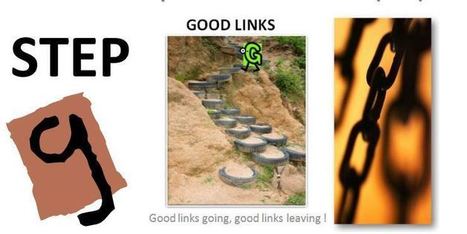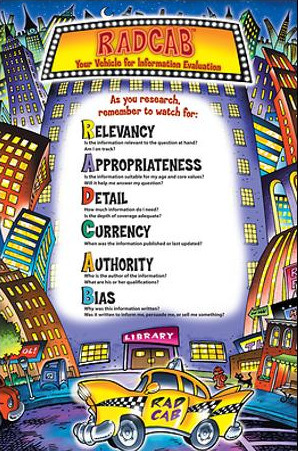Welcome to a this seventh in a series that is must read for any educator wanting to facilitate web page evaluation by students. It includes a new step in web evaluation information along with a p...
Research and publish the best content.
Get Started for FREE
Sign up with Facebook Sign up with X
I don't have a Facebook or a X account
Already have an account: Login
Tech tools that assist all students to be independent learners & teachers to become better teachers
Curated by
Beth Dichter
 Your new post is loading... Your new post is loading...
 Your new post is loading... Your new post is loading...
|

Gary Faust's curator insight,
July 27, 2013 12:19 PM
These guidelines are particularly helpful in evaluating "science" sources. So much that isa presented as "science" is biased and may be more appropriately categorized as "political science". 
Alejandro Ibañez Bonilla's curator insight,
January 9, 2014 9:32 AM
Pasos para evaluar la información en línea... |












This post is the last of a series that looks at website evaluation. Beginning with the letter A the posts were titled:
* A is for Author
* B is for Bias
* C is for Currency
* D is for Domain Anatomy
* E is for Effectiveness of Purpose
* F is for Facts and Contents
* G is for Good Link
It is not easy for students (or teachers) to learn how to evaluate websites. For each letter you may download a flyer that provides resources for students to use as they learn the process. Michael Gorman states "I believe that web evaluation must be a simple process that can also be applied to memory. Thus the reason for my (A-G) approach. This series is devoted to teaching these skills..."
If you will be working with students this year with website evaluation you may find these handouts valuable. It appears to me that they are written at a middle school level.